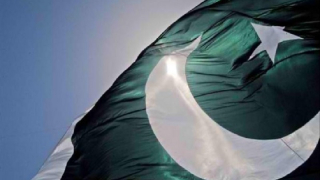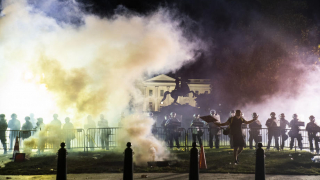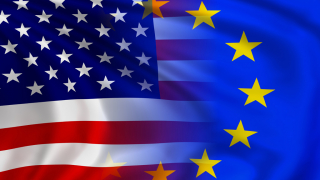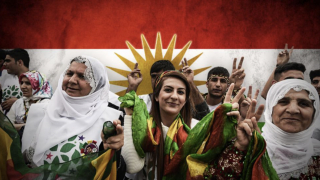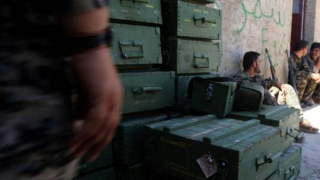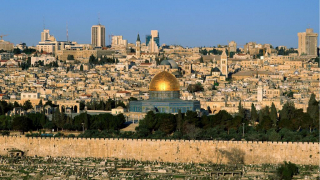Understanding Charlottesville Isn't As Simple As It Seems
13.08.2017
What happened in Charlottesville yesterday isn't as black and white as a bunch of racists attacking anti-fascist counter-protesters.
Let's get the disclaimer right out of the way -- yes, there were people rallying in support of actual racist, fascist, and white supremacist ideologies, and one of their supporters committed an act of terrorism by ramming his car into a crowd of counter-protesters. None of this is acceptable and it should all be rightly condemned. That being said, the prevailing issue isn't as simple as a few fascist thugs causing trouble, and it's the deeper nuances at play which deserve to be examined more closely if one is to comprehensively understand the tense state of affairs in America today.
To be fair, there was violence committed by the counter-protesters as well, with "Antifa" and "Black Lives Matter" leading the charge in this regard, but just as those two aren't fully representative of everyone who joined in their rally, neither were the racist, fascist, white supremacists emblematic of the typical protester on their side either. Both parties, however, feel existentially threatened by the other, and therein lies the driving force behind their clashes.
For all intents and purposes, "Antifa" and "Black Lives Matter" can be grouped together as representing the Far Left, while their opponents embody the Far Right. All of the regular folks caught between these two extremes fall along various places on this spectrum.
In order to begin making sense of what happened in Charlottesville this week, one needs to go back to the trigger event that sparked the protests in the first place, which is the historical revisionism taking place in the state as it seeks to dismantle its Confederate heritage. To be clear, the legacy of slavery is abominable, though the South was about much more than that, and stamping out historical reminders of the Civil War is a dystopian disservice to all Americans.
The Far Right was mobilized in response to the city of Charlottesville planning to tear down a statue to Confederate military leader General Robert E. Lee, and while some participants clearly demonstrated in support of racist ideologies, others were plainly upset for more "moderate" reasons dealing mainly with the topic of states' rights, which the South has come to symbolize ever since the Civil War.
This right was abused in the instance of wanting to perpetuate slavery, but that horrible example shouldn't forever tarnish the general idea of allowing states to fully practice their sovereign rights as bestowed in the Constitution. Ever since the end of the Civil War, the "federal" government has been steamrolling states' rights in its quest to centralize the country, which has for the most part been fully carried out over the past century and a half in demolishing the governing traditions that the US was founded on.
This is obviously a wider topic to be explored more in depth at another time, but the point to focus on here is that the states' rights cause has become more important to the average American lately as the country continues to wallow in its never-ending Culture Wars. It's this issue, and not racism or the glorification of slavery, that attracts a lot of interest in support of preserving Confederate monuments.
So as not to be misunderstood, this in no way whitewashes or excuses racist and other social riffraff who exploit this rallying point in order to promote their hateful ideologies, as regrettably happened in some cases on Saturday. However, there's also no tiptoeing around the fact that so-called "white nationalism" is on the upswing, and that it openly associates itself with Southern symbols.
About this movement, it shouldn't be automatically equated with white supremacy, though sometimes there's no difference - again, it depends on the individual person who openly advocates in the supposed name of "white nationalism".
In and of itself, "white nationalism" is a defensive response to the hyper-liberal social policies of "affirmative action" and the welfare state which are perceived by some Caucasians as unfairly benefiting African-Americans at their expense.
Because most "white nationalists" have lost touch with the ethnic identity of their ancestors and largely don't consider themselves as Polish-, Italian-, Irish-, or other European-Americans anymore but just as "white Americans" or more simply only "white", it can be argued that they themselves are ironically an outcome of the very same liberalism that they despise. This is due to the "success" that the far-reaching socio-economic implementation of this ideology has had in stripping them of their historical traditions and making them an indistinguishable part of a larger amorphous "white" blob which serves as a counterpart to what they view to be the similarly indistinguishable "black and brown" blobs that supposedly pose a threat to their culture.
Whether this is an accurate depiction of reality or not is a moot point because the intent here is on explaining what drives "white nationalists", not in convincing anyone of either the validity or ridiculousness of their views. Accordingly, due to the racial reaction component that inspires "white nationalism", it's easy to see how this movement overlaps with white supremacy and is effortlessly exploited by it at times.
The much-publicized rise of "white nationalism", especially in the past year when it was inaccurately described by the Mainstream Media as being the same thing as the so-called "Alt-Right", produced a strong reaction among the Far Left "Antifa" and race-centric organizations such as "Black Lives Matter", which were already growing on their own but acquired an added urgency in the face of "white nationalism". Symbiotically, "white nationalism" also fed off of the explosion in popularity and global attention given to these two interconnected groups, which further contributed to the inevitability that they'd fatally clash with one another in the future.
Street skirmishes between the Far Left and Far Right have become frequent events ever since Trump's election, and many ordinary Americans on the milder range of the political spectrum have been caught in between them. This simmering situation contributed to the feeling of unease that each camp experienced towards the other and it served to radically polarize some of their members.
The latest result of this boiling tension was the clashes in Charlottesville and an ideological Far Right extremist committing a vehicular terrorist attack against his political opponents. Now that one woman has died, a state of emergency has been declared, and global attention is riveted on this issue, the US is forced to confront the three related issues that it wishes it could forever ignore: race, the Civil War legacy, and political radicalization on both ends of the spectrum.
"Two wrongs don't make a right", as the aphorism goes, and individuals should take responsibility for their own actions and be held accountable for them as well, but there's no avoiding that the Far Left ("Antifa" and "Black Lives Matter") has been a much more visibly destructive force in the US over the past couple of years than the Far Right, but it's only that the Far Right is being singled out right now because of the "political correctness" dealing with the trifecta of topics mentioned above (race, the Civil War legacy, and political radicalization of the Far Left and Far Right).
This doesn't take away any of the blame that racists deserve, nor should it downplay yesterday's terrorist attack, but it also means that the Far Right isn't the only guilty party here, and that it will continue to be fueled by the rise of the Far Left and the open double standards exhibited towards them by the Mainstream Media and sometimes even the local police forces. About the last point, this relates to how some law enforcement representatives feel more comfortable using force to disperse the Far Right nowadays than they do when it comes to the Far Left because of the "Ferguson Effect".
The core of the problem today is that "moderates" on both the left and the right are reluctant to publicly disown the extremists on "their side", and this is contributing to the further polarization of the US as each rival camp begins assuming that their opponents all embody the same extreme ideological characteristics of their most publicized representatives, who are more often than not political radicals. Moreover, the Far Left and the Far Right are both being exploited for domestic political purposes as well, and it's the instrumentalization of these forces by certain actors which represents one of the most dire threats to the US today.
It's become fashionable to assume that Trump associates with fascist forces and gives them "dog whistles" through various statements and actions, but the truth is that Trump has condemned racists, fascists, and white supremacists in the harshest ways possible on multiple occasions. Trump isn't bolstered by the Far Right, he's threatened by it, and it's disadvantageous to his image that some of their members don his "Make America Great Again" campaign gear when staging their rallies.
No matter how many times Trump denounces these groups and their misappropriation of his symbols, it won't stop the so-called "opposition" (the Democrats and their civil society henchmen of the Far Left) from claiming the opposite. In addition, it's ironic that only Trump is forced to disown one of the two extreme political movements in the US, while no similar pressure is ever put on his opponents to do so when it comes to the other.
The Democrats are not controlling the Far Right, but they perversely gain from over-hyping its rise and all things related to it because it fits their politicized narrative that Trump is a "fascist dictator" and white supremacist groups are his "brown shirt" thugs. It also galvanizes the opposition and feeds into the symbiotic rise of the Far Left, providing more foot soldiers for the Democrats in destabilizing domestic affairs and disrupting the implementation of Trump's agenda for the homeland.
Nevertheless, the Mainstream Media depiction of events has focused solely on the openly racist, fascist, and white supremacist elements that were protesting in support of General Robert E. Lee's statue, implying through images of them wearing "Make America Great Again" hats and some commentators' "analyses" that they're part of the "Alt-Right" that Trump is somehow associated with the repulsive events that recently took place, or at the very least should take responsibility for supposedly "encouraging" them with "dog whistles" over the last two years.
Nowhere in the general public discourse is there a serious discussion taking place about how Trump has nothing to do with this, nor about the relationship between the political "opposition" (the Democrats), the Far Left ("Antifa" and "Black Lives Matter"), and partisan "NGOs" (the Soros Foundation). Also lost in the overall coverage is the states' rights cause that Southern symbols represent for the "moderate" majority of protesters, as well as the socio-economic conditions that gave rise to the reactive ideology of "white nationalism".
Instead, it's much more convenient to focus on the racist, fascist, and white supremacist fringes of the sometimes interconnected states' rights, anti-"affirmative action", and anti-globalization movements because it fits into a preexisting Mainstream Media narrative which is more easily digestible for the casual information consumer and beneficially works out in the favor of the political "opposition". This highly irresponsible approach to understanding the Charlottesville events is very dangerous because it ignores the interrelationship between the Far Right and the Far Left, and it also downplays legitimate grievances that both sides' majority-"moderate" supporters claim.
Without addressing the core causes of the chaos in Charlottesville, which are the inconvenient realities of race, the Civil War legacy, and political radicalization on both ends of the spectrum, to say nothing of one of the nation's two main parties instrumentalizing the violent interplay between these three factors, the US will never overcome its many hateful divisions, and deadly clashes such as those which took place in Charlottesville yesterday might become as commonplace in the future as gangland shootings in the inner city are today.
________
DISCLAIMER: The author writes for this publication in a private capacity which is unrepresentative of anyone or any organization except for his own personal views. Nothing written by the author should ever be conflated with the editorial views or official positions of any other media outlet or institution.




